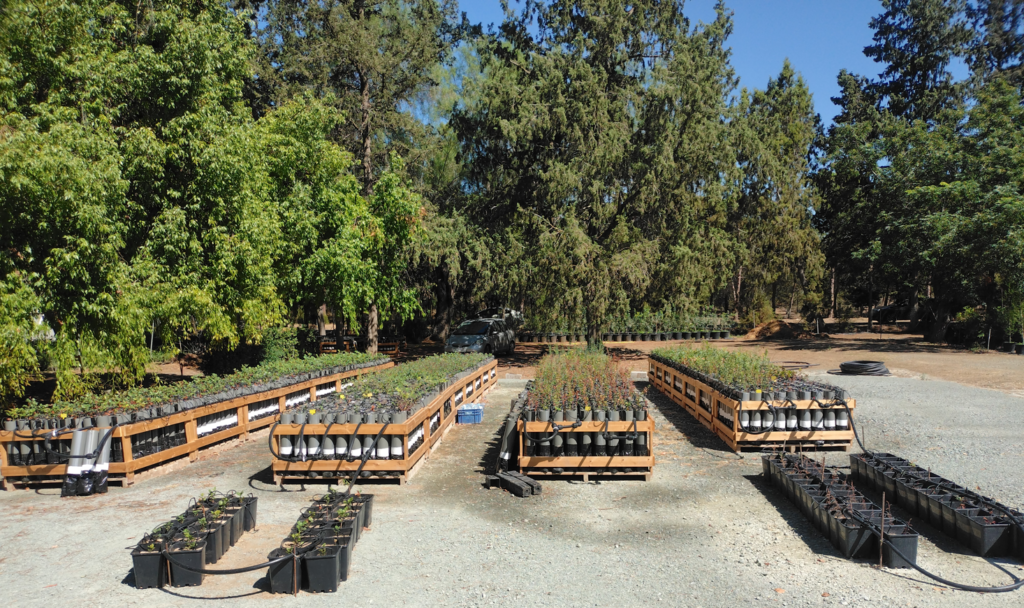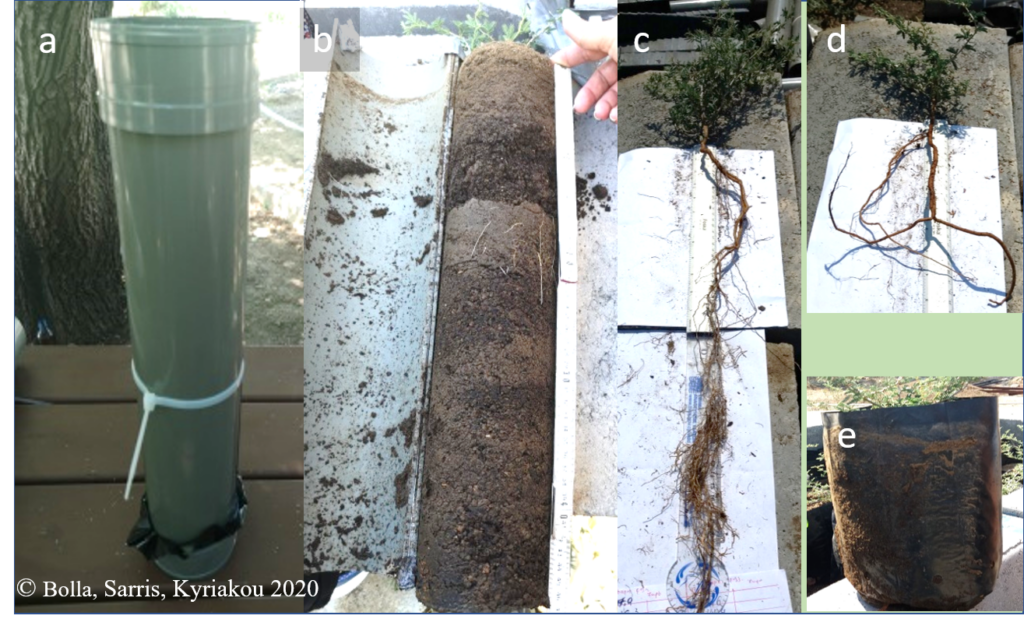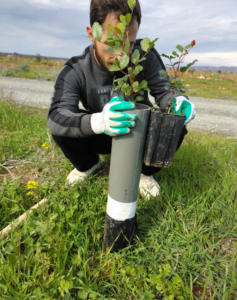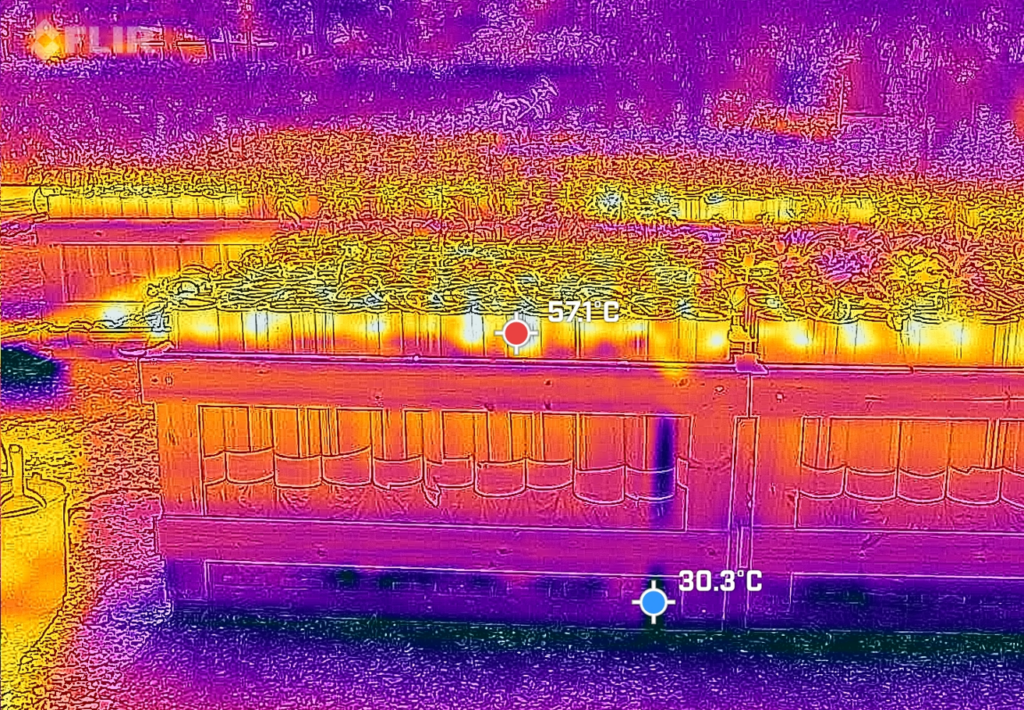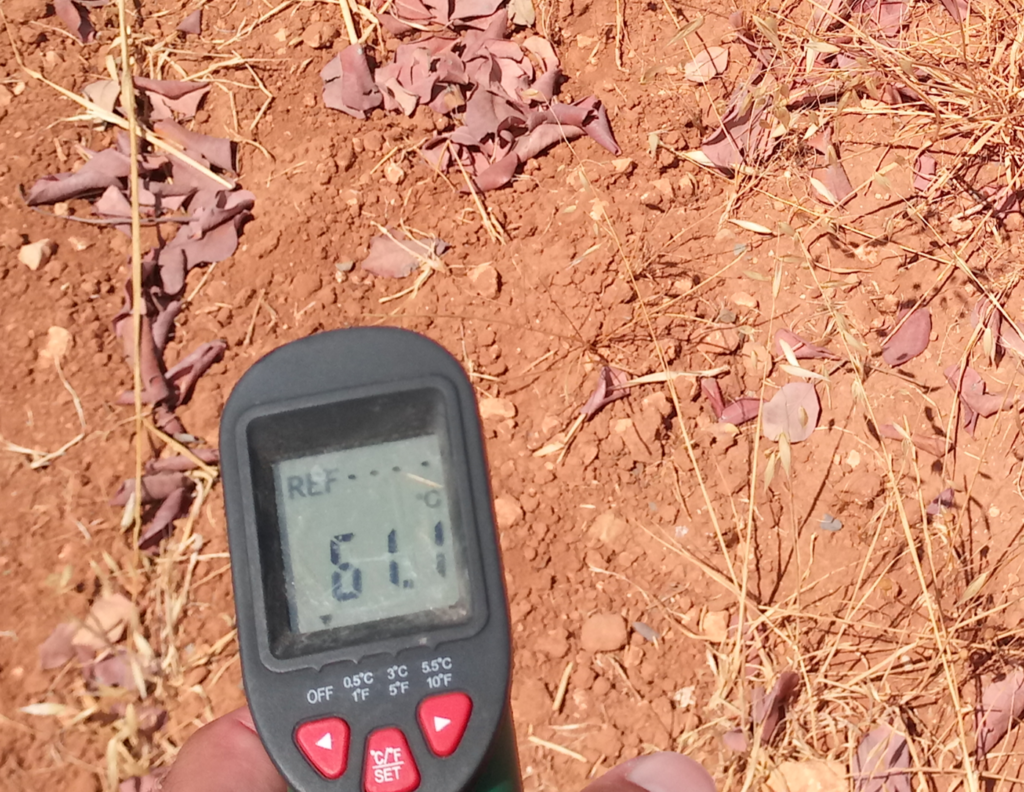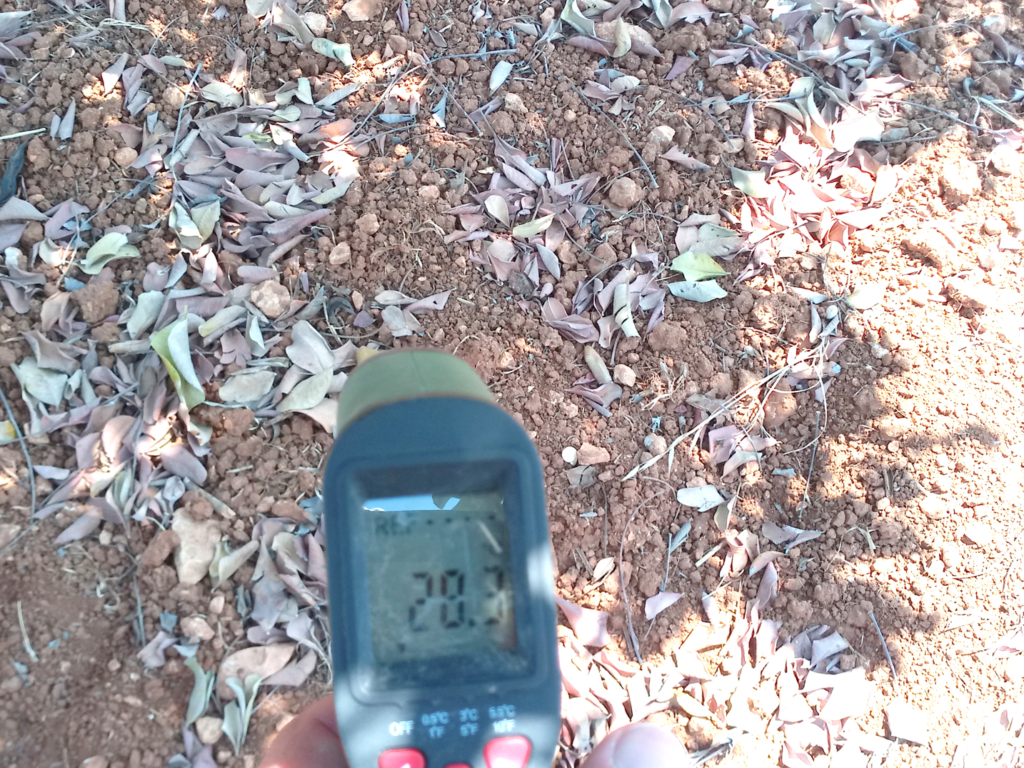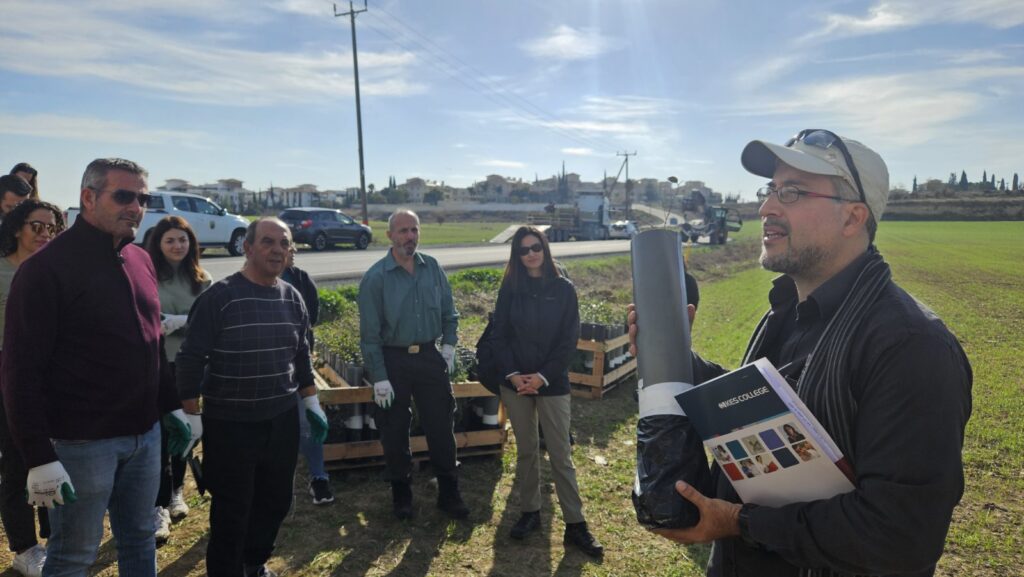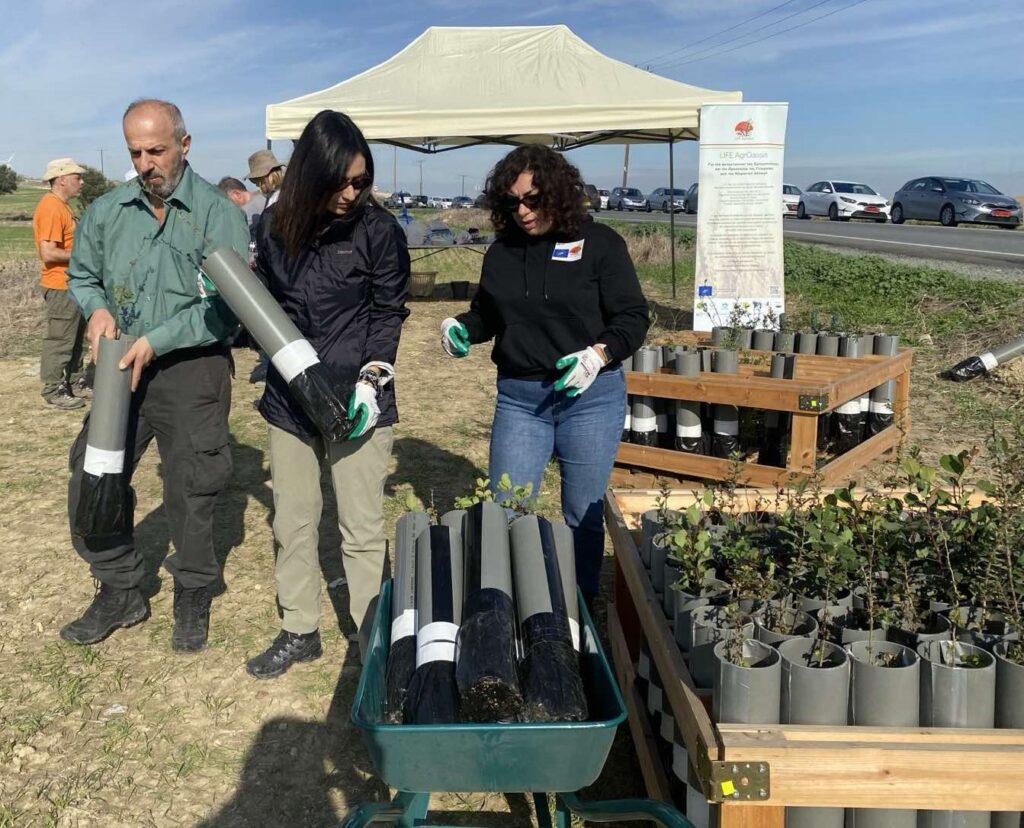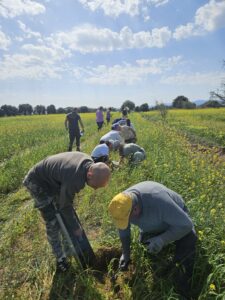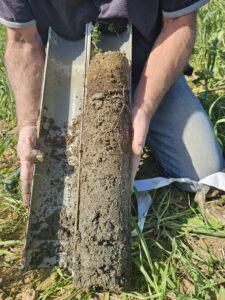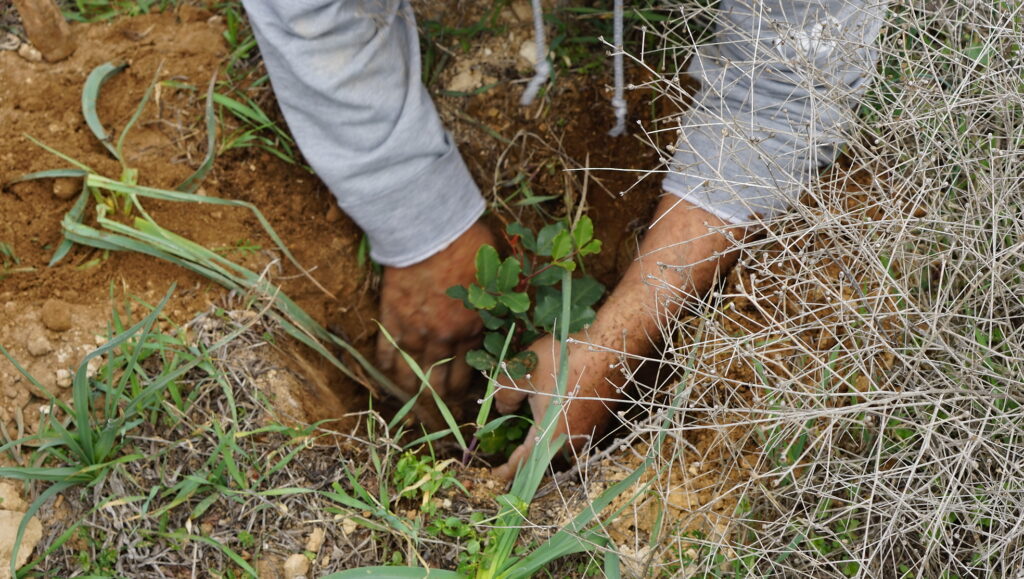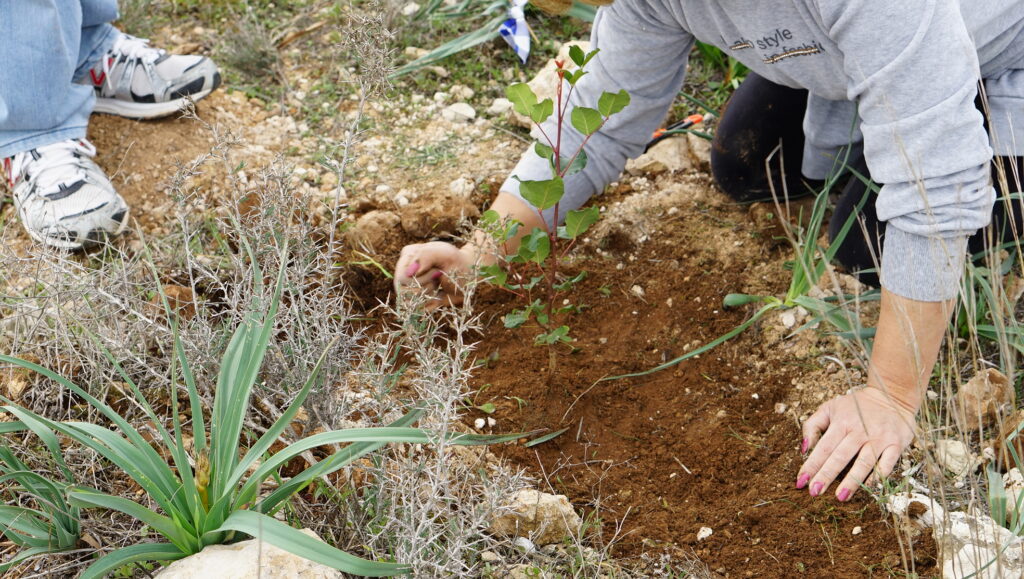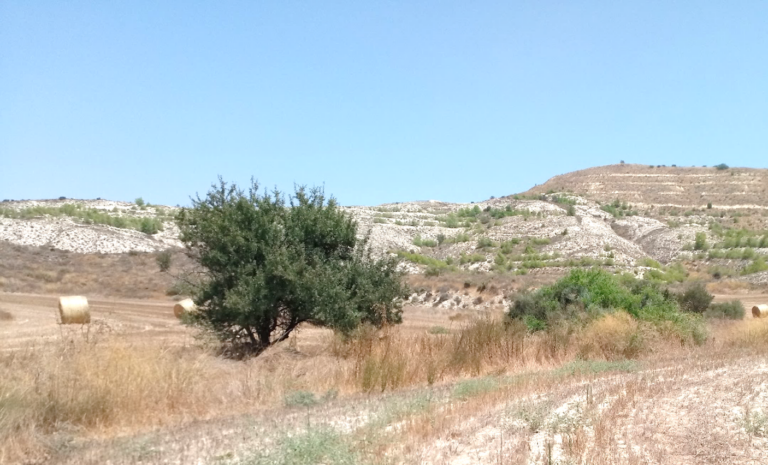
LIFE-AGROASSIS aims to address desertification, to enhance ecosystem resilience and promote sustainable agriculture, by planting resilient hedgerows and utilizing innovative techniques.
Resilient to drought, hedgerows are a must in combating desertification and for adapting to climate change for agroecosystems of Mediterranean drylands. Their long term benefits will be seen in the improvement in soil conditions, microclimate, pollinator services, as well as in secondary crop production. Moreover, installing new hedgerows and retaining them is critical for carbon capture and storage, while potentially supporting farmer income through carbon farming.
To achieve this goal, a nursery infrastructure for production of specialized planting tubes has been built and the production of seedlings preconditioned to drought stress has been established. The final step is to implement planting of hedgerows in degraded wheat fields, margins and roadsides connecting fields, and in burnt and/or degraded orchard margins. Within cereal fields and orchards prone to desertification, around 30 km of hedgerows (6,000 trees and 12,000 shrubs) will be planted in burnt and/or degraded agricultural land of Cyprus, replicated in about 3km of land in Greece (600 trees and 1,200 shrubs) in the regions of Thessaly and Crete. The project aims at including in its programme at least 350ha of land in Cyprus, 100 ha in Thessaly and 50ha in Crete.
Deep Root Training Tubes (DRTT)
The DRTT system is designed to produce deep-rooted seedlings resistant to water stress, facilitating successful establishment in arid environments. The Department of Forests and the KES Research Center have collaborated to develop and implement this system, which involves the cultivation of seedlings in 60cm deep tubes with soil amendments (attapulgite and beneficial microbe complex).
Eighteen plant species adapted to drought conditions have been selected, including Pistacia atlantica, Ceratonia siliqua, and Thymbra capitata. These species have the potential to develop deep root systems and provide critical ecosystem services such as soil improvement and pollinator support.
Onsite Implementation and engagement of Civic Society
In the first planting season (November 2023 – March 2024) 2,000 deep-rooted plants have been planted in degraded agricultural land in Cyprus, contributing to ecosystem restoration and climate change adaptation.
To enhance community engagement and raise awareness about environmental protection from climate change, the project partner Laona Foundation actively recruits and coordinates volunteers from companies and organisations, who, following a training in the specialised planting method, contribute enormously to the installation of hedgerows. Their active involvement demonstrates the importance of civic society in environmental conservation and climate change resilience. Their contributions not only amplify the impact of the project but also promote awareness and advocacy for sustainable practices within communities.
Photos: @sarris, @lifeagroassis
